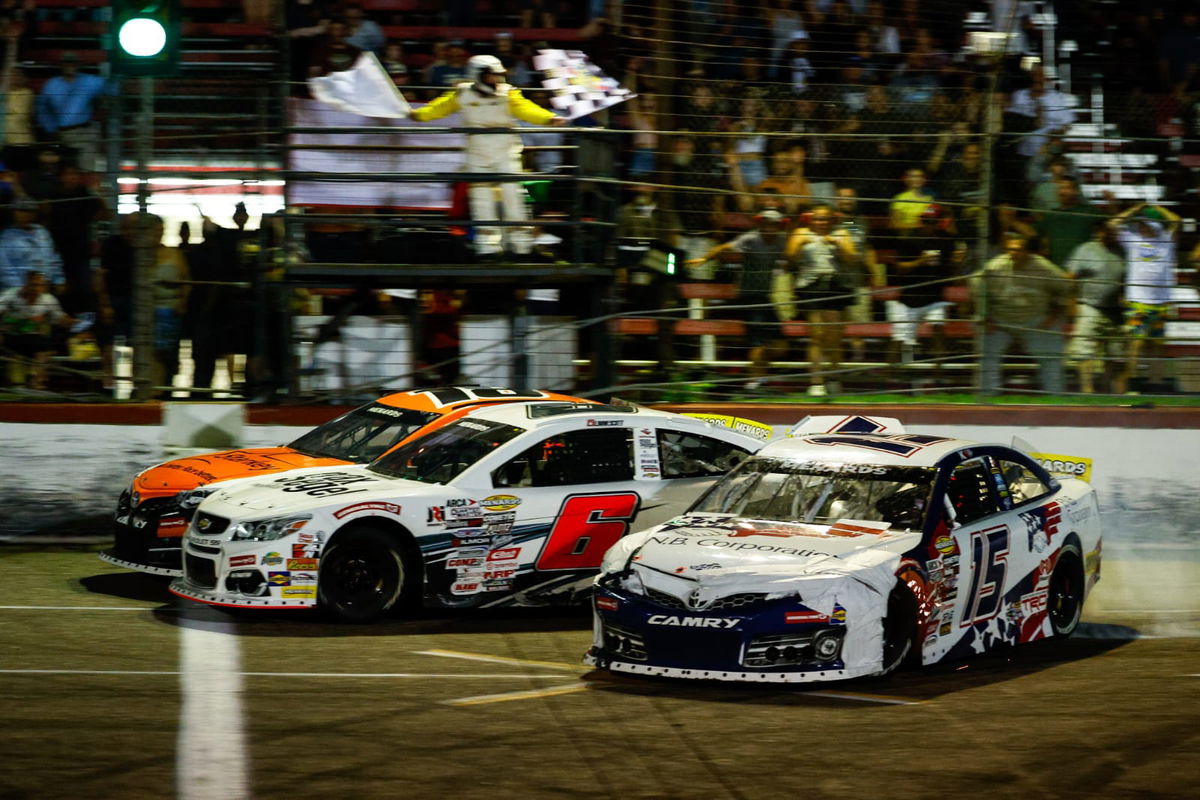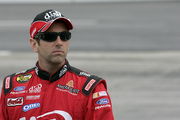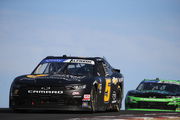
Imago
ARCA race

Imago
ARCA race
Chaos is NASCAR’s love language during All-Star Week, and this year, it’s getting a little extra spicy. From format tweaks to bold new track rules, the 2025 All-Star Race promises unpredictability at every turn. Among the changes? A new “promoter’s caution” — a scheduled mid-race break meant to bunch up the field and boost drama. Think stage racing’s loud cousin.
Watch What’s Trending Now!
Drivers and fans have mixed feelings, but if NASCAR’s goal is more elbow-out action, it’s working. With tempers shorter and stakes higher, the new format is already stirring controversy. And we haven’t even made it to race day. One feeder series may have just given us a horror movie-style preview of what’s coming. And let’s just say, it wasn’t pretty.
ADVERTISEMENT
Preview of the NASCAR All-Star race isn’t well-received
The 2025 Tide 150 at Kansas Speedway delivered a moment that felt eerily like a preview for NASCAR’s upcoming All-Star Race. On lap 48, the caution flag flew as part of a scheduled pit procedure, just shy of the halfway mark. This break was designed to allow teams to pit under controlled conditions, with strict rules: no adding or removing tires from the pit box once the race had started. The move, though procedural, sparked confusion among fans and teams, raising questions about its timing and purpose.
This scheduled caution mirrored the controversial “promoter’s caution” set for the All-Star Race at North Wilkesboro Speedway. NASCAR’s new format allows officials to throw a random yellow flag at any point before lap 220 in the 250-lap event, specifically to bunch up the field and inject unpredictability. The intent is to prevent the race from becoming stale, especially on short tracks where overtaking has become more challenging since the introduction of the next-gen stock cars. However, a lower NASCAR league has been introduced to new rules. And, it is a sign of an impending danger in the sport.
Per ARCA handout: #ARCAMenards #ARCA #NASCAR https://t.co/8hQqjheuKU pic.twitter.com/Okt1W8yffu
— Brett Winningham (@NASCAR_BRETT) May 10, 2025
ADVERTISEMENT
The ARCA series will now see a scheduled pit stop at or near lap 50 in every race! Also, this pit stop won’t allow a tire change. Maybe before going all in with the “promoter’s caution”, NASCAR wants to test it at lower leagues to see the impact. While this seems to make races more interesting in the sport’s authoritarian perspective, that does not seem practical. These artificial interruptions can disrupt race flow and frustrate competitors. The Kansas field had gone caution-free for the first half, only for the scheduled break to halt momentum and reset strategies. Many in the paddock and on social media voiced concerns that such manufactured drama undermines the purity of competition and leaves outcomes feeling manipulated. But every cloud has a silver lining! With this, there is another rule that seems like a positive impact on the sport- an increase in the tire arsenal.
As per the changes in the ARCA rulebook, the maximum number of tires that can be used by a team has been increased from 12 to 16 per race. This number includes both home-bought and track-bought tires. This could make teams more prompt with tire management, and it’s the kind of rule NASCAR Cup Series fans could embrace. But, the changes… don’t they seem a bit out of place?
ADVERTISEMENT
With the All-Star Race set to use a similar approach, things don’t seem to be seeping into enthusiastic fans. The Kansas experiment has not gone down well with traditionalists. And this ‘preview’ from the ARCA event suggests that while NASCAR intends to boost excitement, the reality may be a chaotic, contentious spectacle that divides fans and drivers alike.
Top Stories
Greg Biffle’s House Burglary Suspect Identified After Officials Release Security Camera Footage – Report

Bubba Wallace’s $218.94B Sponsor’s Exit Triggers Unlikely 23XI–NASCAR Partnership

NASCAR Team Faces ‘Boycott’ After Veteran Driver Gets Fired

Tony Stewart’s Long-Awaited NASCAR Return Backfires as Daytona Entry Draws Harsh Reality Check

Brad Keselowski Gets Real on His Daytona 500 Plans With Bold 6-Word Confession

Brenden Queen survives late-race chaos to win the Tide 150 at Kansas
Brenden Queen emerged victorious in a dramatic Tide 150 at Kansas Speedway, surviving a wild one-lap shootout to claim his second ARCA Menards race win of the season. Queen, driving for Pinnacle Racing Group, was a dominant force throughout the night, leading a race-high 72 laps after taking the top spot from William Sawalich on lap 35.
ADVERTISEMENT
The race began with Lawless Alan on the pole, but Sawalich quickly took control in the early going. Queen steadily closed the gap, capitalizing when Sawalich lost the nose of his car in Turn 3, allowing Queen to slip underneath and seize the lead. From there, Queen controlled the pace, even as scheduled and unscheduled cautions repeatedly reset the field.
The first major incident came with 18 laps to go, when Michael Maples spun off Turn 4, bunching up the field. Soon after, Thad Moffitt and Lavar Scott collided, ending Moffitt’s strong run inside the top five. The race’s most dramatic moment came just as Queen was about to take the white flag. A crash involving Lanie Buice and Isabella Robusto brought out another caution, with Robusto making hard contact with the inside wall.
This set up a tense ARCA Overtime finish. On the final restart, Queen executed perfectly, clearing Sawalich into Turn 1 and pulling away to win by 0.275 seconds. Mason Mitchell, Lawless Alan, and Lavar Scott rounded out the top five. With this victory, Queen not only showcased his restart prowess but also took over the series points lead, solidifying his status as a championship contender as the ARCA Menards Series heads to Charlotte.
ADVERTISEMENT
Well, what do you think about the promoter’s caution? Do let us know in the comments below.
ADVERTISEMENT
ADVERTISEMENT
ADVERTISEMENT
